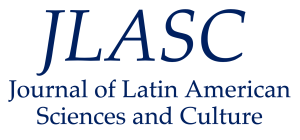Cooperation as a key ingredient for development in science, technology, education, economy and culture between China and Latin America
DOI:
https://doi.org/10.52428/27888991.v3i3.181关键词:
Cooperation, Dialogue, Latin American studies摘要
China has a long history of relations with Latin America, and under the “Belt and Road" initiative, China and Latin America have become more closely connected and have achieved more results in economic and trade, science and technology, and cultural exchanges. The interest in Latin American studies is growing not only because of Latin American’s rich natural resources, passionate culture, and superior geographical environment, but also because Latin America's development needs have an important intersection with China's development path.
Downloads
参考
Cabero, M. (2019). The Pillars of Excellence in Education in the New Era. Journal of Latin American Sciences and Culture, 1, 6-9. https://doi.org/10.52428/27888991.v1i1.37
Cabero, M. (2021). WHEN DIALOGUE MATTER Interview by the China today Magazine Excerpt. Journal of Latin American Sciences and Culture, 2, 17-18. https://doi.org/10.52428/27888991.v2i2.48
Guachi, R. (2019). Conection between industry and academy. Journal of Latin American Sciences and Culture, 1, 13-14. https://doi.org/10.52428/27888991.v1i1.39
Downloads
已出版
How to Cite
期
栏目
License
Copyright (c) 2021 Journal of Latin American Sciences and Culture

This work is licensed under a Creative Commons Attribution 4.0 International License.
Authors who publish in this journal agree to the following conditions: Authors retain copyright and grant the journal the right of first publication, with the work licensed under a Creative Commons Attribution 4.0 International License, which allows others to use the published work provided they acknowledge the authorship and initial publication in this journal. Authors may enter into separate, additional contractual agreements for the non-exclusive distribution of the version of the article published in this journal (e.g., posting it to an institutional repository or publishing it in a book), provided they clearly indicate that the work was first published in this journal. Authors are permitted and encouraged to share their work online (e.g., in institutional repositories or on personal websites) before and during the manuscript submission process, as this can lead to productive exchanges and increased and faster citation of the published work.









